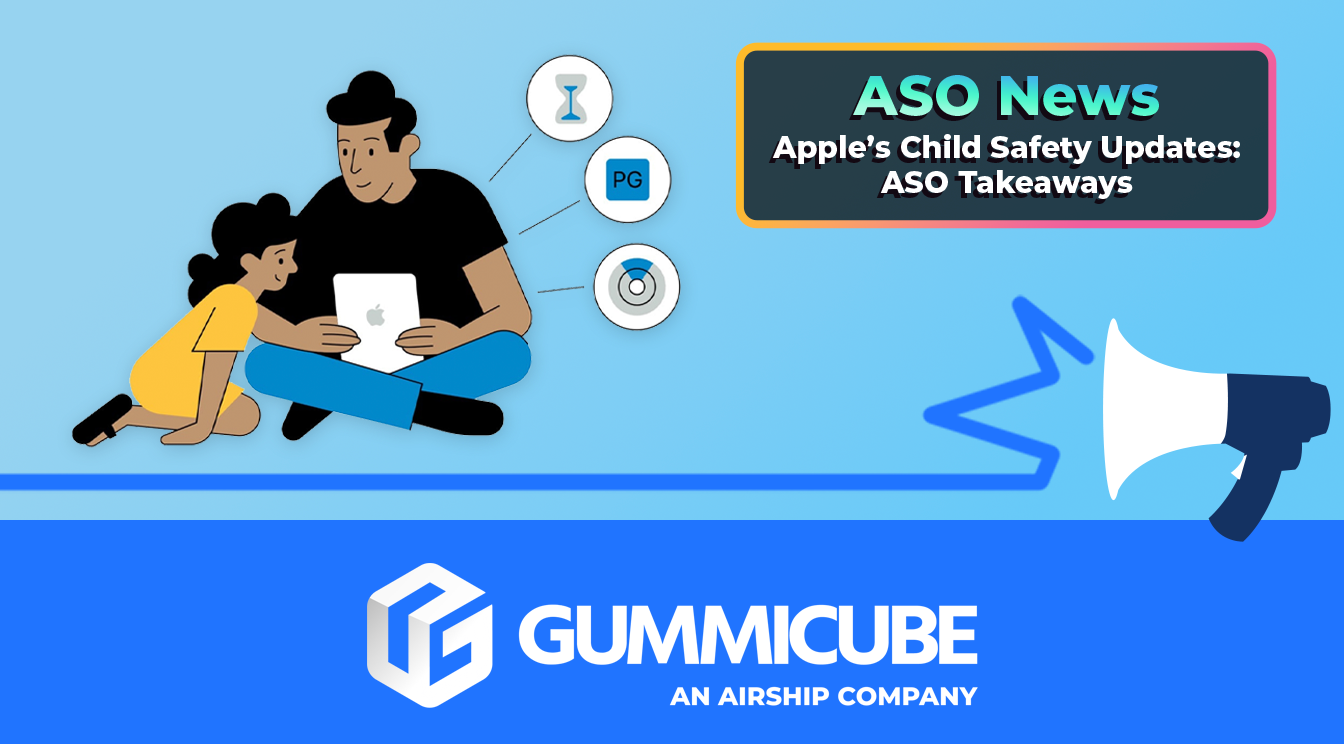
Apple’s Child Safety Updates: ASO Takeaways
Posted on March 28th, 2025
Apple’s child safety updates will impact App Store visibility for certain age groups. Learn how these changes affect ASO and how to optimize for your audience.

Last week Google announced additional details surrounding the upcoming privacy changes heading to the Google Play store, including a tentative timeline and directional images. Reminiscent of the App Store “Privacy Nutrition Labels” that Apple introduced in December of last year, this “Safety Section” will provide developers with a space to communicate to users why they collect data and what it would be used for.
Google initially announced that privacy changes were on the horizon back in May of this year, however not a lot of information was available then. On July 28th Google provided additional insight into the coming policy and a tentative timeline to give developers a chance to plan.

The tentative deadline for when all developers will be required to have this dedicated data information section is set to occur April of next year. Starting early next year, users will begin seeing the safety section on the Google Play Store. Given that the declaration form will not be available to developers until October of this year, there is ample time to plan.
It would behoove developers to start preparing the necessary information as soon as possible to stay ahead of the game. Starting in October of this year, developers can submit this information in the Google Play Developer Console for review. Google will provide developers with a questionnaire in the section entitled “App privacy & security” on the App Content page in Play Console.
All developers will be required to answer this questionnaire. Google has provided some guidance concerning what information will need to be provided and has stated that more details will be available over the coming months. Along with requiring all apps to provide a privacy policy, they will need to declare what types of data are collected and shared by the app and for what purpose, as well as additional app and data disclosures.
The types of collected data that will need disclosure are similar to what users already see in the “App Permissions” section of an app’s Play Store listing. Sensitive information includes financial details like credit card and bank account numbers, as well as a user’s SMS and email messages and contact details. Personal information ranges from health data collected by wearables to a users name, phone number, and location. Other less sensitive information that is collected must also be disclosed, such as performance data, diagnostic logs, and device type.

Developers are responsible for informing users as to why such data is being collected. This also provides opportunities to justify data collection by letting users know that their information will not only be handled responsibly, but could improve their experience within the app. Purposes include app functionality, notifications, analytics, security, and personalization.
An important distinction developers will be able to make in this new section will be whether or not collected data is shared with third parties. This could encourage users to share information that will provide important metrics for developers if it is explicitly stated that no other parties will be privy to the details. Some types of data collection and sharing will not be subject to disclosure, such as end-to-end encrypted data going off devices that is not visible to the developer, and the transfer of data necessary for legal compliance.
The new privacy and security section will also provide developers with the opportunity to highlight the steps they are taking to protect a user’s collected data. Here, they can let their users know if the data is encrypted in transit and what options are available to delete shared data if they so choose. There will be a section that will allow the developer to assure that data collection practices comply with Google Play’s Families Policy, which will be helpful in regards to apps directed towards younger audiences. Additionally, there will be an option to take an app through an independent external security review based on a global standard.
Similar to Apple’s App Store “Privacy Nutrition Labels,” a dedicated safety section will soon be coming to the Google Play Store. This section will allow developers to showcase how they responsibly handle a user’s data, and it will place the freedom of choice in sharing information into the user’s hands.
Developers have a bit less than a year to prepare their data handling policy information, with the deadline currently set to occur in April of 2022. Google has provided extensive resources and guidance on their policy page, and will open up a questionnaire in October for developers to easily provide the necessary information to remain in compliance. While there is still plenty of time to prepare, it is recommended to start planning now so this transition can be as painless as possible.
Want to learn more about App Store Optimization? Contact Gummicube and we’ll help get your strategy started.

Apple’s child safety updates will impact App Store visibility for certain age groups. Learn how these changes affect ASO and how to optimize for your audience.

Google Play Games expands with new titles and PC support. Discover what this means for ASO and how to stay ahead in the evolving mobile gaming landscape.

Discover the March 2025 update to Apple Business Manager, and learn how it enhances device tracking, compliance, and operational efficiency for businesses.